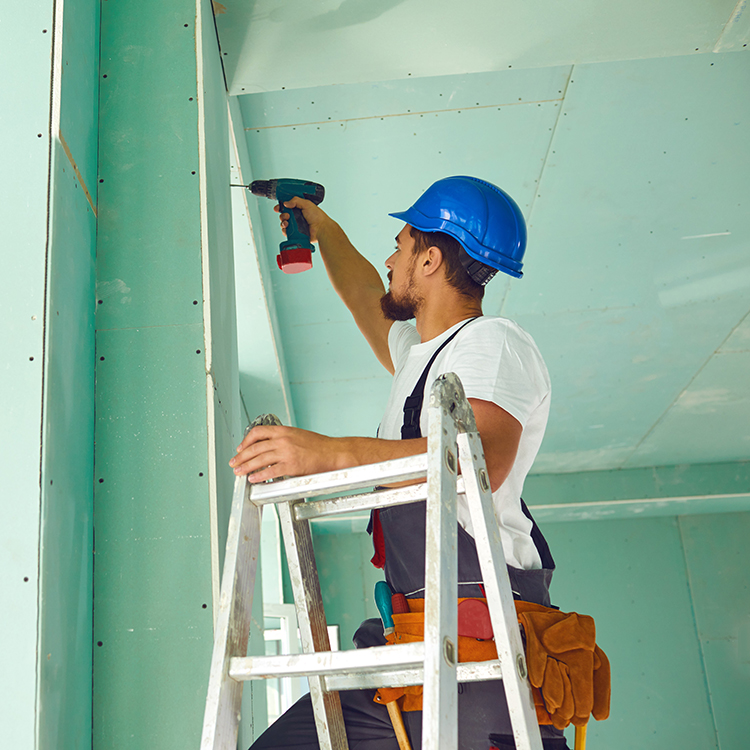Top Six Skills Construction Trades Need
08/12/2025
 By Katie Tejada By Katie Tejada
Getting a job as a trade professional may seem straightforward, but there are a number of skills that everyone, from plumbers and electricians to HVAC technicians and landscapers, should maintain.
Most of these jobs are physically and mentally challenging and require strong personalities to ensure successful work. In addition to the basic skills you’ll need on the job, many of these trade professionals must also consider their working conditions, navigating hazardous environments, tight spaces, heights, heat, and so much more!
 Many people consider a trade career incredibly rewarding and wouldn’t exchange their job for anything else. If you’re considering entering one of these fields, take a look at the top six skills that will help you do your job better. Many people consider a trade career incredibly rewarding and wouldn’t exchange their job for anything else. If you’re considering entering one of these fields, take a look at the top six skills that will help you do your job better. Physical Strength Physical Strength
Is a need for physical strength really surprising when plumbers have to carry heavy pipes and HVAC technicians need to haul massive units? Nearly every trade job is physically demanding. You’ll need to develop a lot of endurance, strength, and stamina to keep up with the job. You might be asked to carry tools and equipment up to the top floor in a building with no elevator, or you may need to haul installation materials from a parking lot across an entire campus.
While the job will give you a workout, it’s also essential to ensure you have the proper posture and support to continue lifting and carrying heavy items. Many trade professionals who do a lot of physical labor have back belts, knee braces, and more to protect themselves and keep them going through a tough day.
Hauling and lifting are not the only things you will have to do on the job! Many construction trade professionals also do some of the smallest, fiddliest work there is.
You might be sitting, standing, or lying down for long hours installing a particular piece of equipment anywhere in a building. Whether you’re in a crawlspace, up in an attic, or high on a roof, your reaction time and precision are critical. While OSHA has a number of regulations to help ensure your safety, you should always take some time and effort to implement extra steps that secure your protection, as well.
Basic Engineering Knowledge
Even if you’re the plumber, you still need to have at least a little bit of knowledge of the other trades who are working on a job with you—especially if you’re working around electrical lines or HVAC units. Distinguishing the types of equipment you and other tradespeople will be using during a job is essential, and knowing how to handle heavy machinery is definitely a plus.
Contractors have it a little bit easier because most of their knowledge should be in their field, but general jobs like construction and general contracting need to have a much broader knowledge base.
Reading and Math Skills
You thought a trade job was all heavy lifting and manual labor? Of course it’s not! You need to be able to know how to read plans, calculate building materials for estimates, keep track of measurements, email other team members, and document your tasks. Even if you’re working alone, you might need to share your documentation with adjacent disciplines to ensure everyone knows what’s going on for a particular project.
Communication
Communication is key to a successful project. Even the smallest residential house has a team of tradespeople from across a number of fields who need to know everything that’s relevant to their role. Did you know that more than forty percent of construction redos occur because of poor communication?
It’s about more than just personal documentation. You may have to write emails, send reports, and ask questions while on the job. Brush up on your reading and vocabulary for verbal and written communication, and make sure you know how to listen to instructions and follow directions.
Experience with Technology
As technology evolves, there will be new tools and processes that you’ll need to learn. Some innovations may become part of your everyday trade, while others may be utilized for training purposes. Every trade industry experiences the impact of technological progress. Even the humble nail gun was revolutionary a hundred years ago!
Many construction firms actually have research and development departments to test new technology and keep up with contemporary tools and equipment. To guarantee you’re staying competitive in your market, consider learning about new technologies, including:
You may even find yourself someday creating training courses for apprentices and other staff about using these tools!
Final Thoughts
Even if you don’t have all these skills on your metaphorical tool belt, the most important thing you must have is a willingness to learn. Trade careers continue to evolve and grow with new tools, methods, and techniques that make these jobs more efficient and cost effective. Anyone who keeps up with up-and-coming trends will find themselves succeeding!
Katie Tejada is a writer, editor, and former HR professional. She often covers developments in HR, business communication, recruiting, real estate, finance, and law. She also sometimes writes for companies like Truewerk.
Source:ConstructConnect
Back To News |
|
|
|
|
||
|
© 2025 Small Business Exchange, Inc. |
||








